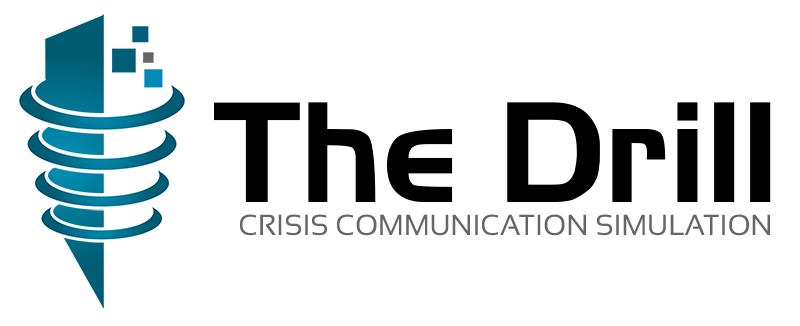The Death of Shame Begets Reputation Management
‘A good reputation is more valuable than money’ claimed Publilius Syrus.
Too bad, though, he didn’t have the experience of watching modern luminaries behave in increasingly amoral ways, without so much as reflecting on, far less smarting from, their hurtful behaviours: Crisis management or crisis planning wasn’t highly developed in ancient Greece.
To us, if entities really don’t care about being shamed, then they can push the envelope all the way up to legal ramification. If they care less about how they’re regarded, then what’s the point of ethical PR ? Professional PR (not press relations) is supposed to help them both listen and behave better, then build ongoing relationships with others on a mutual trust basis.
To act without consideration or regret about how your actions could negatively impact upon others suggests a lack of shame; or a mild psychopathy. Shame is, simply, that internal pang or unease which reminds us we’ve done wrong either accidentally or purposely. And when there’s no shame, it’s inevitable that crisis communications management will be the next cab off the corporate PR rank.
Cash over crisis management
Australia’s recent royal commission, for instance, totally debunked Publilius’ pronouncement about reputation’s pre-eminence, by showing that many banks clearly value(d) pelf more than PR. Or billings over brand; cash over crisis communications it seems!
Remember, despite being found guilty of a litany of predatory banking behaviour, some of the banks and other financial companies called had to be dragged kicking and screaming to front the enquiry in the first place: We’re sure communications consultants and crisis management companies would have been encouraging them to come clean over these issues!
It seems that healthy shame - where damage caused is ruminated, then meaningfully remedied before moving on having received forgiveness from those offended - is losing ground to an emergent hubris epidemic. Hubris and healthy shame don’t get along very well.
Hubris or crisis planning?
Hubris - an inflated sense of flawlessness - might occasion a leading tennis pro to make mid-game playing violations (by taking coaching instruction from the sidelines) then angrily deny her actions while abusing the umpire by calling him a cheat and a thief, afterwards ‘shaming’ the umpire as both racist and sexist. Even if he were, there’s still the ‘cheating’ issue which fuelled his decisions. When we see an inflated sense of ego or self - even in the face of courtroom or televised proof - hubris is increasingly appearing as a more palatable and proscribed issue response, rather than humility. Again, where hubris dominates, crisis training courses and crisis preparedness will be revisited very quickly afterwards.
Shamelessness as a strategy
Did the Australia’s Liberal party feel any sense of shame over their Malcolm Turnbull leadership tear-down? Not to most observers eyes. Instead, propaganda apparatus kicked in to gloss over the treachery and to declare that the backstabbing treachery was entirely in the best interests of the nation.
Again, no genuine PR is needed when being shameless becomes your strategy. With that ‘strategic’ intent (ie to brass-neck it out) the need for crisis management and crisis communications will inevitably follow.
Whether it’s automotive manufacturers cheating emissions tests, presidents lying pathologically or religious leaders not honestly copping to the sins of the Fathers, the lack of shame diminishes the need for professional PR and reputation management. Spin, not substance, will prevail.
US family therapist Carl Whitaker declared that; “Shame occurs when you haven't been able to get away with who you want people to think you are”.
If that’s true, the only antidote to shame has to be to develop true character and integrity but that’s harder to access and practice than acting shamelessly which, it seems, is becoming a more frequent issue response strategy.
Reputation management or crisis recovery plans?
I was schooled to practice a brand of public relations which - as opposed to propagandists or spin doctors - involves trying to help businesses in the development of mutual understanding between themselves and their various publics: Less ‘Wag The Dog’ and more ‘The Candidate’. Do the right thing - including issues management to intercept and solve crisis management scenarios - means you can mostly avoid crisis training and disaster recovery thing!
Some brands who have encountered supposedly lethal PR and reputation disasters - Carnival, Target and Volkswagen for instance - have rebounded back stronger than ever; recovery methodologies vary; yet crisis management solutions and pursued in virtually all of these cases.
Or, is reputation management now anything more than an aspirational online meme?
When celebrities, churches, civic leaders and corporates become consumed with self-interests, they lose the ability to see how their decisions can seriously impact third parties. Without other interest, there’s less need for ‘other relations’ (ie PR).
I’ve been 35-years in the PR and crisis communications management business; who knows, for how much longer. If I meet Publilius in another life, I’ll show him when money became more important than reputation.
And I’ll tell him the only stock that sunk, was that of the professional PR adviser.
/Ends
Gerry McCusker is the founder of Crisis Simulation technology - and crisis training software - The Drill.
